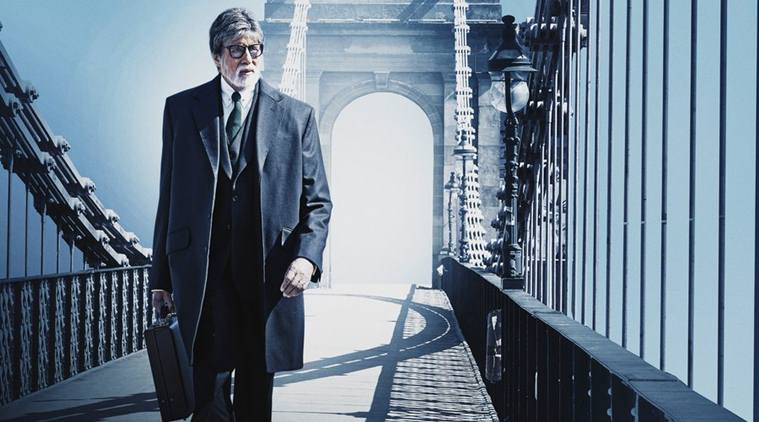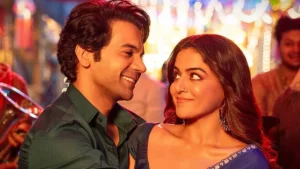
Sujoy Ghosh’s latest film Badla reminds us that the talented filmmaker’s fascination for the thriller genre is not over yet. Starring Amitabh Bachchan and Taapsee Pannu in lead roles, the film is faintly reminiscent of his previous outings. If empathy and the resultant emotional turmoil was the hallmark of Kahaani 2, its predecessor Kahaani was rich in atmospherics with a spellbinding quality to keep you on tenterhooks. Badla, on the other hand, is unusually talky and runs in flashbacks to narrate the timeline of two gruesome murders.
The official remake of Spanish suspense thriller Contratiempo, the film is largely a gender-reversed, scene-to-scene adaptation with the writer’s (Ghosh) creativity being examined solely in the way he integrates Mahabharata in the protagonist’s philosophies. At one point, a clearly uninformed leading lady goes, “Don’t tell me this is from Mahabharata too.” Well, so did I.
Besides that, Badla keeps the European skin of its original intact and the wintry backdrop of Scotland takes time to grow on you. Unlike Kolkata and its bustling chaos in the Kahaani series, the lack of inhabitants in Badla’s setting emerges more as an unexciting prop. The film is devoid of ancillary characters too – be it in the protagonists’ lives or as witnesses to the murders, one of which take place in broad daylight.
Badla opens with an affluent lawyer Badal Gupta (Bachchan) paying a visit to entrepreneur Naina’s (Taapsee) home. In a not-so-smart move for a thriller, Ghosh explicitly mentions how Badal is way too early for the meeting. Naina is entangled in a legal mess and the cops suspect her to have murdered her beau in a desolate countryside hotel. As Badal gets to talking, you slowly realize why Ghosh hired Bachchan to play the part.
“There are two kinds of people – ones that believe that they are smarter than I am, and ones that actually are. You belong to the former,” Badal tells Naina in classic Amitabh Bachchan fashion. Unlike Vidya Balan in Ghosh’s recent films, the character does not toil. Badal’s smartness is one that tends to get overbearing after a point. Principally for someone who is running short of time, Badal’s endless sass and confidence in exposing Naina’s pretences is startling even as we appreciate Bachchan’s time-tested abilities to ace this genre of acting. Also with the needless secondary reveal in the end, Badal’s characterization stands largely stupefied.
Taapsee’s Naina has recently been awarded the ‘Businessperson of the Year’ honour – which, from the looks of it, makes her smart, analytical and careful in her moves. As Badal calls out during their dialogue, Naina is one who misses the details. But, what is the extent of it? Is she frivolous enough to jeopardize her life by succumbing to her nervous energy within? For a successful entrepreneur who deals with large mergers and business deals, Naina (strangely) conducts a crucial meeting in the absence of her legal counsel, Jimmy (Manav Kaul). Furthermore, Naina is shown to be unimaginably passive and unprepared in dealing with a situation that would easily threaten the stealth of her empire as well as that of her individual credibility.
The twist, in the end, is one that you see approaching from a distance. As mentioned earlier, Badla also offers a secondary twist which the filmmaker considers to be smart but is, in fact, one that robs the film of a good share of its plausibility. It does make for an exclamatory reveal from a dramatic standpoint but only at the cost of dumbing the screenplay several notches down.
On the positive front, Ghosh uses his ability to accentuate tension on the screen to great effect in Badla. Here is a film that keeps you on the edge of your seats. The film throws twists after twists in regular intervals, leaving you with fewer chances to think. Ghosh’s ability to conceal some of his screenplay’s glaring incongruences with his style of showy execution stands replicated in Badla too.
The editor (Monisha Baldawa) does a swell job with a series of well-timed montages, pitch-perfect interspersion of flashbacks and also in her decision to keep the frame durations less. Badla is one film where you fear looking away from the screen in fear of missing out on details and possible clues. The film scores further in the way it examines possibilities – with separate passages for Naina and Arjun (Tony Luke) to hatch the same crime. As a result, you seldom realize how more than half of its runtime takes place within a house with two people chatting.
Extremely functional, the original score is characteristic to the genre and more so to the style of the composer, Clinton Cerejo. The director of photography (Avik Mukhopadhyay) gets his moments of glory with several generic suspense thriller tropes to inspect – lonely roads, unmanned lakes, tricky methods to hide evidence, clandestine meetings, a mysterious hotel et al.
Performances by the key artists – Bachchan, Pannu, Tony Luke and Amrita Singh – are topnotch and it is Singh in a well-balanced turn who brings maximum gravitas to the screenplay that gets harder to fathom as it tiptoes to the finale. The film’s way of vindicating some of its ridiculous plot twists is through obvious production design gimmicks such as framed posters in one of the character’s home.
All said and done, Badla still remains a fairly engaging thriller which plays the mind games out quite well but it is also hard not to spot several of its compromises. Centred on concepts of revenge and forgiveness, the film wouldn’t spring surprises if you are familiar with the genre necessities. For the rest, the Sujoy Ghosh film delivers the goods even at the cost of badly designed characters and a perennial lack of logic all through.
Rating: ★★★

